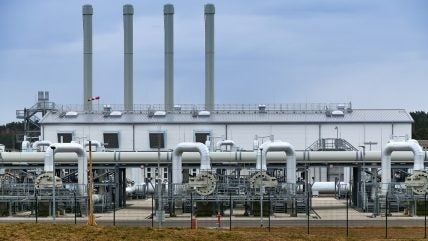
The EU could face higher energy prices next winter as Russia’s contract to supply gas to Europe via Ukraine expires at the end of this year.
Brussels officials warned members in an internal document prepared for the European Commission seen by Politico.
Moscow and Kyiv initially signed the five-year pipeline transit agreement in 2019, but EU Energy Commissioner Kadri Simson said there was no interest in extending the deal, agreeing with Ukraine which also does not want to revive the pact.
According to the internal document, the EU will lose 5% of its total gas imports, most of which were headed for central and southeastern Europe. Should the winter be particularly cold, the loss of gas imports could create a “worst case” scenario for countries reliant on transit through Ukraine.
The letter added that re-routing of the bloc’s gas supplies could result in “higher transport costs” while “storage levies” imposed by EU countries could “make this diversification more difficult and costly”.
Europe has already sought to abandon Russian gas since the latter invaded Ukraine in 2022, with the aim of curtailing wartime revenues for the Kremlin.
How well do you really know your competitors?
Access the most comprehensive Company Profiles on the market, powered by GlobalData. Save hours of research. Gain competitive edge.

Thank you!
Your download email will arrive shortly
Not ready to buy yet? Download a free sample
We are confident about the unique quality of our Company Profiles. However, we want you to make the most beneficial decision for your business, so we offer a free sample that you can download by submitting the below form
By GlobalDataBrussels published a report last October that suggested EU imports of Russian gas had fallen to 40–45 billion cubic metres (bcm) in 2023, compared with 155bcm in 2021.
At an EU Parliament meeting in February, Simson claimed that alternative supplies have now been sourced by countries that were once served by the gas transit route, including Austria, Italy and Slovakia. However, a recent move by Germany to unilaterally tax gas exports is complicating supply routes.
EU energy ministers are meeting in Brussels today to discuss energy security issue for winter 2024-2025.
“We should avoid steps that will damage the work done and strengthen the Russian aggressor,” said Czech Industry Minister Jozef Síkela, according to Politico.



